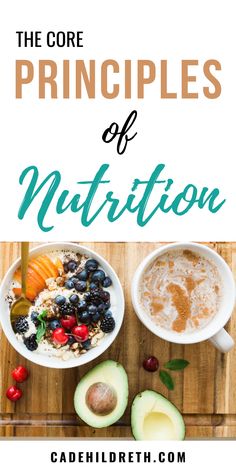Discover the ultimate beginner’s nutrition guide that will teach you how to start eating healthy. Learn the basics of nutrient-dense foods, dietary diversity, and cutting back on processed items. Get expert tips and advice for beginners
Are you a beginner looking to improve your nutrition and start eating healthy? Look no further! This comprehensive beginner’s nutrition guide will provide you with all the essential information you need to kickstart your journey towards a healthier lifestyle.
Getting Started: Nutrition Basics for Beginners
When it comes to healthy eating, it’s essential to prioritize nutrient-dense foods over processed options. Nutrient density refers to the concentration of vitamins, minerals, protein, carbs, and healthy fats in the food you consume. By opting for nutrient-dense choices, you can ensure your body receives the necessary fuel it needs to thrive.
Dietary Diversity for Healthy Eating:
Embracing dietary diversity is another key aspect of beginner’s nutrition. Consuming a variety of foods helps support your gut health, maintain a healthy weight, and reduce the risk of chronic diseases. If you’re a picky eater, don’t worry! Start by introducing new foods gradually, and over time, you’ll develop a taste for a wider range of nutritious options.

Finding the Right Macronutrient Balance:
Macronutrients, such as carbs, fat, and protein, play a crucial role in your diet. While the specific macronutrient ratios may vary for individuals, it’s generally recommended to have a balanced intake of all three. Adding protein and healthy fats to fiber-rich carbs can enhance the taste and satiety of your meals and snacks.
Cutting Back on Processed Foods:
To optimize your health, it’s important to reduce your consumption of highly processed foods. Although not all processed foods are unhealthy, those that are heavily processed and contain artificial additives should be limited. Focus on whole, nutrient-dense foods like fruits, vegetables, nuts, and lean proteins.
Tips for Beginners:
Starting your journey towards healthy eating can be overwhelming, but these tips will help you get started:

- Make small changes: Begin by incorporating healthier choices into your meals and snacks gradually.
- Emphasize nutrient-dense foods: Prioritize foods rich in essential nutrients, such as fruits, vegetables, whole grains, and lean proteins.
- Avoid processed foods: Limit your intake of processed and packaged foods, opting for whole, natural alternatives instead.
- Stay hydrated: Drink plenty of water throughout the day to support your overall health and well-being.
- Seek professional guidance: Consider consulting a registered dietitian or nutritionist for personalized advice and guidance tailored to your specific needs.
Conclusion:
Embarking on a journey towards healthy eating as a beginner is an empowering decision. By following this beginner’s nutrition guide, you will gain valuable insights into the basics of nutrient-dense foods, dietary diversity, and the importance of cutting back on processed items. Remember, small changes can make a big difference, so start your nutrition journey today and enjoy the benefits of a healthier lifestyle.

